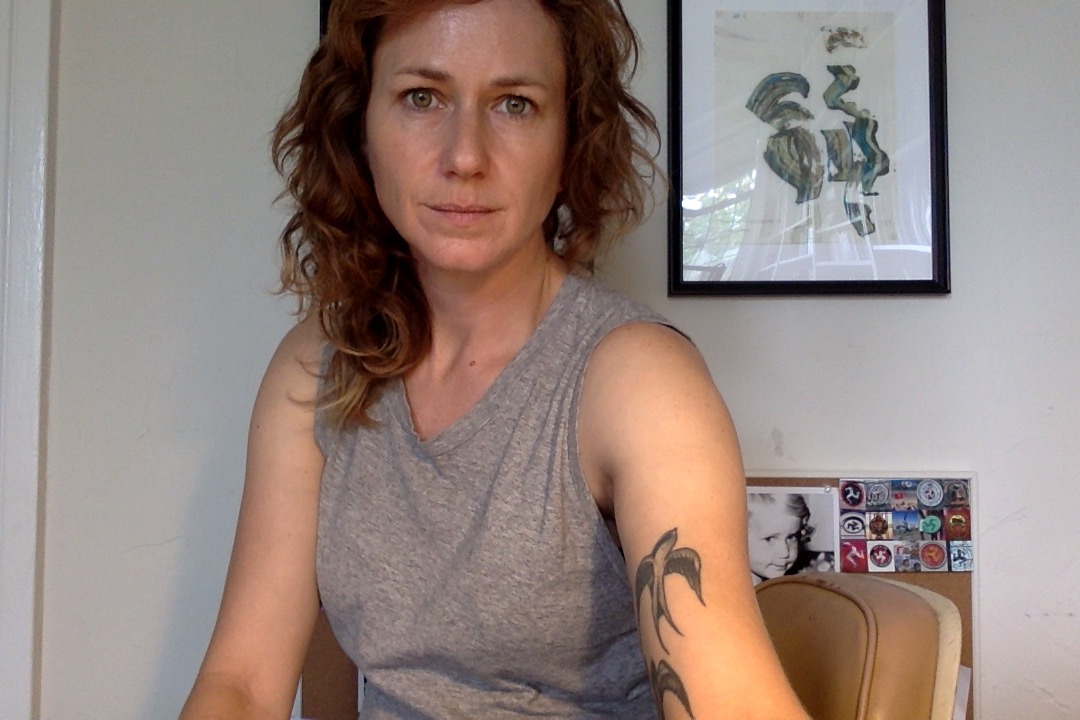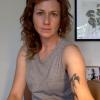Meet Teaching Artist Emily Wolahan


Emily Wolahan is a writer and teacher who lives in San Francisco. She is the author of the poetry collection HINGE (NPRP, 2015). Her poetry appears in Gulf Coast, Georgia Review, Oversound, and other publications. She won the Loraine Williams Poetry Award and Arts & Letters's Unclassifiable Contest. Her essays have been anthologized in Among Margins (Ricochet Editions, 2016) and appear in the New Inquiry and Quarterly Conversation. She holds an MFA from Columbia University and has received fellowships from the Headlands Center or the Arts and Vermont Studio Center. Emily has taught writing workshops with the San Francisco Writers Grotto and as a Fellow at the Ruth Asawa School of the Arts. She has also taught writing at Columbia University and UC Berkeley Extension. She has been senior editor at Two Lines Press, editor at JERRY Magazine, and is currently a poetry editor at Tinderbox Poetry Journal.
You can find out more by following her on Twitter. To find Emily's current classes, visit her artist page.
***
When did you start teaching? What path—career or otherwise—brought you here?
I started teaching in grad school and kept teaching during those many years I stayed a graduate student. A more important question for me is why, as my career veered more toward editorial work, have I continued to teach? Teaching is a conversation—sometimes structured, as in a class, sometimes unstructured, as in an exchange with an acquaintance—that has the potential to radically change or deepen our perspectives. I believe an ethical way for me to exist in the world is to always be engaged in that conversation, always attuned to it. Because my skills lie in writing, I choose to teach it within the structure of a class—but I’m always engaged in teaching and learning as I move through the day. Sometimes my teachers are my children, trees, friends, passersby, books, TV, films, Twitter.
How would you describe your teaching style?
I believe strongly in co-leadership and try to incorporate this into my teaching style. While I am facilitating the class and will offer my experience and opinions, I like to establish that the other writers in the room are teaching each other and me as much as I am them. Apart from that, it’s important to me to offer encouragement and vision. I’ll encourage you because you already did the hard part (you wrote something!) and help you develop the vision for your piece.
When it comes to imagining and creating classes, where do your ideas come from? What in particular inspires you?
Right now, I find a lot of inspiration from activists for climate justice. To achieve climate justice, we need no less than a complete dismantling of cultural and economic structures we might have never questioned. For example, land is not a resource—respect, don’t exploit. For example, an economy and culture built on constant consumption cannot be sustained. These realities inform my teaching because rethinking how we view the world around us must occur at the lowest level—our daily lives.
As writers, we have an opportunity—and nimbleness—to accept that culture is not a static thing that never changes. As writers, we can subtly (or not so subtly, depending on your take) influence social change. That doesn’t mean my classes demand political writing—not at all! Cultural change doesn’t happen with the manifesto; that’s a starting point. When our stories, poems, and artwork reflect that needed, nimble, horizontal way of thinking—we contribute something vast.
That said, I’m a very practical person and a writer with many projects going at once. My classes also favor the down-to-earth needs of writing exercises, revision, readership, etc.
What's the ideal environment for your classroom? What atmosphere are you hoping to establish?
I am teaching online exclusively right now, so the environment I create for a virtual classroom will be nonphysical. If I could channel a physical space, however, I would hold every class in the Rothko Chapel in Houston, Texas. It is a nondenominational, spiritual, octagonal space with natural lighting and contains fourteen paintings by Mark Rothko that circle the room. I would have participants seated in a circle. We would commune, read and write, take several breaks to go outside and admire the Barnett Newman sculpture or sit under a live oak in the park. Because this is impossible, I hope to channel from the Rothko Chapel feelings of calm, equanimity, respect, and focus and bring those aspects to our virtual space.
Regardless of what your class is specifically focusing on, what's the main goal you have for your students?
My goal for students is always for them to feel more confident about their writing leaving the class than going in. It is so easy to be critical of our own writing—and that self-criticism gets in the way of fully realizing pieces. Apart from this, my goal is that students will leave with practical tools they can use after the class has ended. Whether that’s an aspect of revision, being introduced to an online resource, or a strategy for their writing practice.
What are goals you have for yourself? These could be teaching goals, writing goals, career goals, community goals, etc.
Currently, I’m working on my third poetry manuscript—in the early stages of figuring out where the poems are going. I often write poems either in sequence or poems that speak to each other. I need to write several pages before I can see where I'm going. I’ve also been toying with a draft of a novel—enjoying the percolating stage of the setting, the characters, and their relationships. My goals are always tied to my writing and my writing always accompanies my other goals.
What have been some of your own favorite educational experiences?
I’ve been very lucky to have been in writing workshops with some incredible poets—as teachers and fellow students. One that I look back on in wonder was a two-day poetry workshop I took with Jorie Graham in Sligo, Ireland, while attending a conference on W. B. Yeats. I barely knew Graham’s work then but have since been hugely influenced by her. I think back on that tiny room where we all sat and wish I could whisper in my twenty-five-year-old ear: She will become one of your heroes. Instead, I remember feeling hot and wanting a cigarette.
I also have so many favorite educational experiences that have nothing to do with writing—most recently volunteering at the Alemany Farm in San Francisco and learning practical gardening skills.
To you personally, what is the most important part of the literary arts?
The “arts” part. Envisioning yourself as an artist is the first step to taking your writing beyond the confines of how we use language daily.
Is there anything else you'd like to share?
Only that I look forward to seeing you in one of my classes!
Video Interview
This interview references a class Emily taught in spring 2021. To see her current class listing, visit her artist bio.
